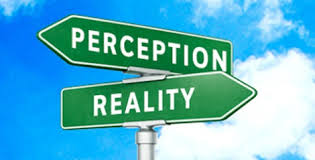Facts and figures can only take an argument so far. At a certain point, people decide that how they feel about a statistic will determine their stance on an issue. Spouting empirical data creates more questions and does not settle the score. The definition of truth becomes vague and complicated. Much of truth relies on people’s ability to recall events. Story details become conflicted. No one knows who or what to believe. So much of personal experience shapes what we choose to believe. The fact that flying is six times safer than driving is not enough reassurance for some people to get onto a plane. How they feel about being on a plane is what scares them, and telling them it is statistically safer will not change a thing. A fact void of emotion tends to go nowhere. Ultimately, a person will make a choice based on how they perceive a fact. This does not have to always be based on reality.
How one recalls events in their lives can change as well. The account of one individual can differ greatly from that of other witness of an event. Bias can obscure how events are remembered. Certain aspects of a memory are emphasized depending on the individual. It is easy to see how history can be brought into question when considering all the variables that can distort the truth. Knowing how much of the justice system and education revolve around the accounts of eye witnesses, can much of what is considered the truth actually be a matter of perception? Are humans extremely limited in how much they are able to know, even with all the information available to the public? Good judgment will fill in the gaps when access to the truth is limited. In a world of incessant information, wisdom is the ultimate mediator between reality and perception.


